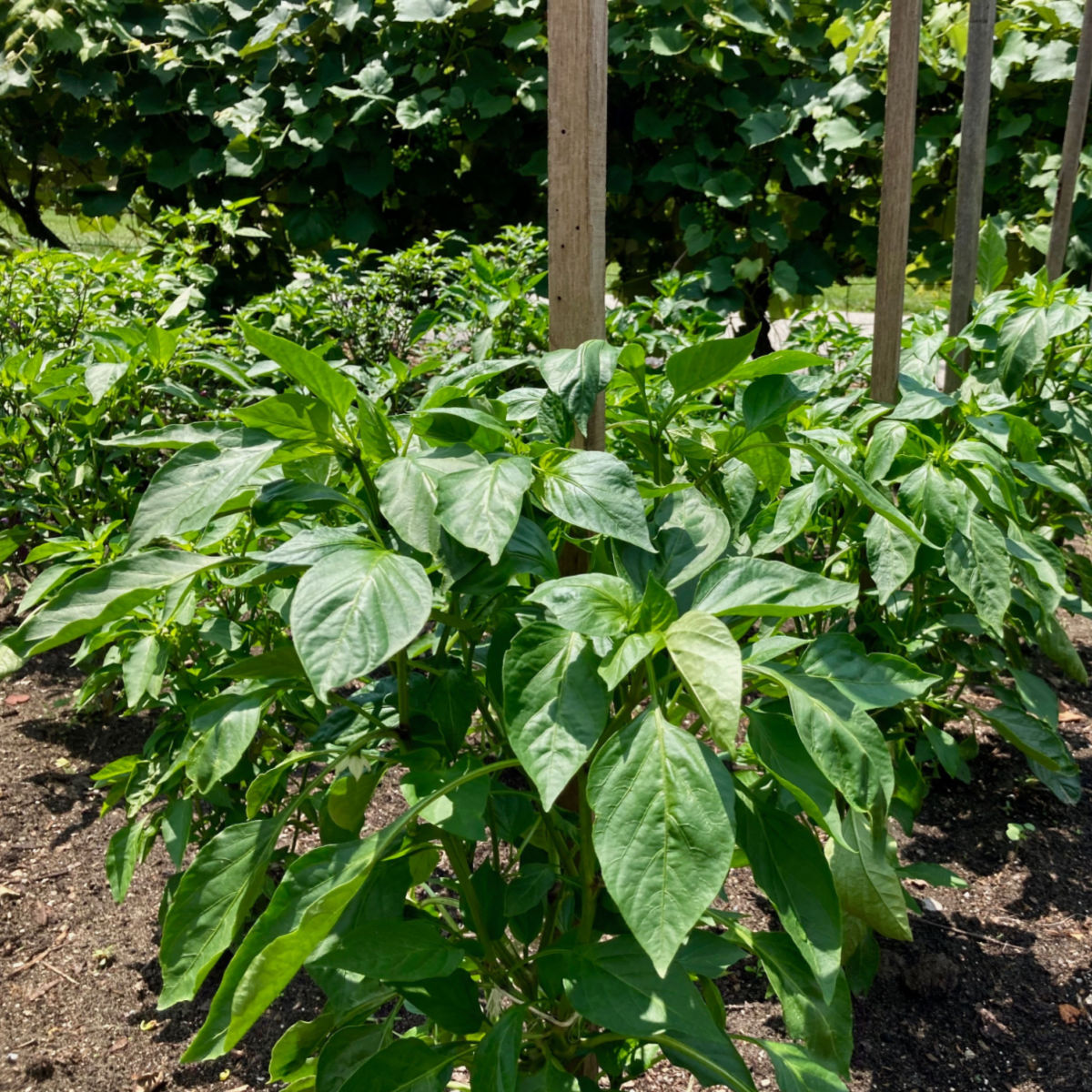Organic Vs. Synthetic Fertilizers: Which Is Best for Nurturing Healthy And Balanced Pepper Plants?
In the realm of nurturing healthy pepper plants, the selection in between organic and synthetic fertilizers stands as a critical decision with far-reaching effects. While both alternatives goal to supply vital nutrients to support plant development, the subtleties of their effect on the soil, plant wellness, and the atmosphere spark a discussion that mirrors throughout the gardening area. Comprehending the distinct benefits and prospective pitfalls of each plant food type is crucial for pepper farmers seeking to maximize their yields while keeping an eco-conscious and lasting technique.
Benefits of Organic Plant Foods
Organic fertilizers use an environmentally-friendly and lasting approach to beneficial pepper plants, providing crucial nutrients without making use of artificial chemicals. These natural plant foods are stemmed from organic resources such as compost, manure, bone dish, and algae, promoting dirt health and biodiversity. Unlike synthetic plant foods, organic choices release nutrients slowly, guaranteeing a balanced and stable supply for pepper plants to flourish.
One significant advantage of organic plant foods is their ability to enhance dirt structure and water retention. By improving dirt health, organic fertilizers advertise beneficial microbial activity, which helps in nutrient uptake by pepper plants. In addition, organic fertilizers decrease the danger of chemical run-off, shielding water sources from pollution and securing the setting.
In addition, organic fertilizers add to long-lasting soil fertility by promoting the growth of helpful dirt microorganisms. These microorganisms aid damage down raw material, launching nutrients in a kind that is conveniently obtainable to pepper plants. best fertilizers for peppers. By cultivating a healthy and balanced dirt ecosystem, natural plant foods sustain lasting pepper growing methods that benefit both plants and the atmosphere
Drawbacks of Synthetic Fertilizers
Synthetic plant foods, in contrast to their natural counterparts, posture different disadvantages when made use of to nourish pepper plants, influencing both plant health and wellness and ecological sustainability. One major drawback of synthetic plant foods is their tendency to seep nutrients from the soil swiftly.
Furthermore, the overuse of artificial fertilizers can add to water pollution. Excess fertilizers not soaked up by plants can wash away right into water bodies, leading to eutrophication, where algae flowers diminish oxygen levels in the water, hurting aquatic life. Artificial fertilizers are usually acquired from non-renewable sources, such as fossil fuels, contributing to carbon discharges and ecological destruction during their production.
Nutrient Absorption Contrast
When contrasting synthetic and organic plant foods in terms of nutrient absorption, natural plant foods have the advantage of offering a more well balanced and slow-release source of nutrients. Organic plant foods have a selection of macro and trace elements that are not only useful for the plants but also advertise healthy and balanced soil Going Here microbial activity, which assists in nutrient uptake.
Moreover, organic fertilizers boost soil structure and water retention ability, enabling pepper plants to gain access to nutrients more successfully. This enhanced soil top quality assists in root growth, allowing better nutrient absorption. Artificial fertilizers, although originally boosting plant development because of their high nutrient focus, may hinder long-lasting nutrient absorption by degrading dirt health with time.
Environmental Influence Considerations

On the other hand, artificial plant foods, although usually more immediately available and focused to plants, can have destructive results on the atmosphere if not applied properly (best fertilizers for peppers). Their manufacturing calls for high energy inputs, resulting in greenhouse gas emissions and find here adding to environment modification. The drainage of excess synthetic fertilizers can infect water sources, leading to eutrophication and harming marine environments.
Finest Plant Food Practices for Peppers
When fertilizing pepper plants, enhancing nutrient uptake and decreasing environmental effect are vital considerations. To achieve this, it is important to follow best fertilizer methods customized to the specific needs of pepper plants. One vital technique is to perform a soil test before using any type of plant foods. This examination can determine the pH level of the soil and identify any type of nutrient deficiencies, assisting you in choosing one of the most ideal plant food solution.
One more crucial method is to fertilize pepper plants at the best time. Generally, peppers take advantage of receiving plant food at growing and afterwards once again when they start to blossom. Over-fertilizing can bring about nutrition discrepancies and harm the plants, so it is vital to adhere to advised application rates.
Additionally, picking a well balanced fertilizer with an NPK ratio that matches pepper plants' demands is fundamental. Organic plant foods, such as garden compost or manure, can be outstanding choices as they launch nutrients slowly and boost dirt structure with time. Artificial fertilizers can give a quick nutrient increase when needed. Inevitably, integrating artificial and organic plant foods carefully can help support healthy pepper plants while lessening environmental effect.
Verdict

Organic plant foods supply an environmentally-friendly and sustainable method to nourishing pepper plants, supplying crucial nutrients without the use of synthetic chemicals. Unlike artificial fertilizers, organic alternatives launch nutrients slowly, making sure a well balanced and constant supply for pepper plants to prosper.
Artificial fertilizers, in contrast to their organic counterparts, present different downsides when used to nourish pepper plants, impacting both plant health and ecological sustainability. When contrasting natural and synthetic fertilizers in terms of nutrient absorption, natural plant foods have the advantage of providing an extra balanced and slow-release resource of nutrients.In addition, organic plant foods improve soil framework and water retention capability, permitting pepper plants to accessibility nutrients a best site lot more efficiently.